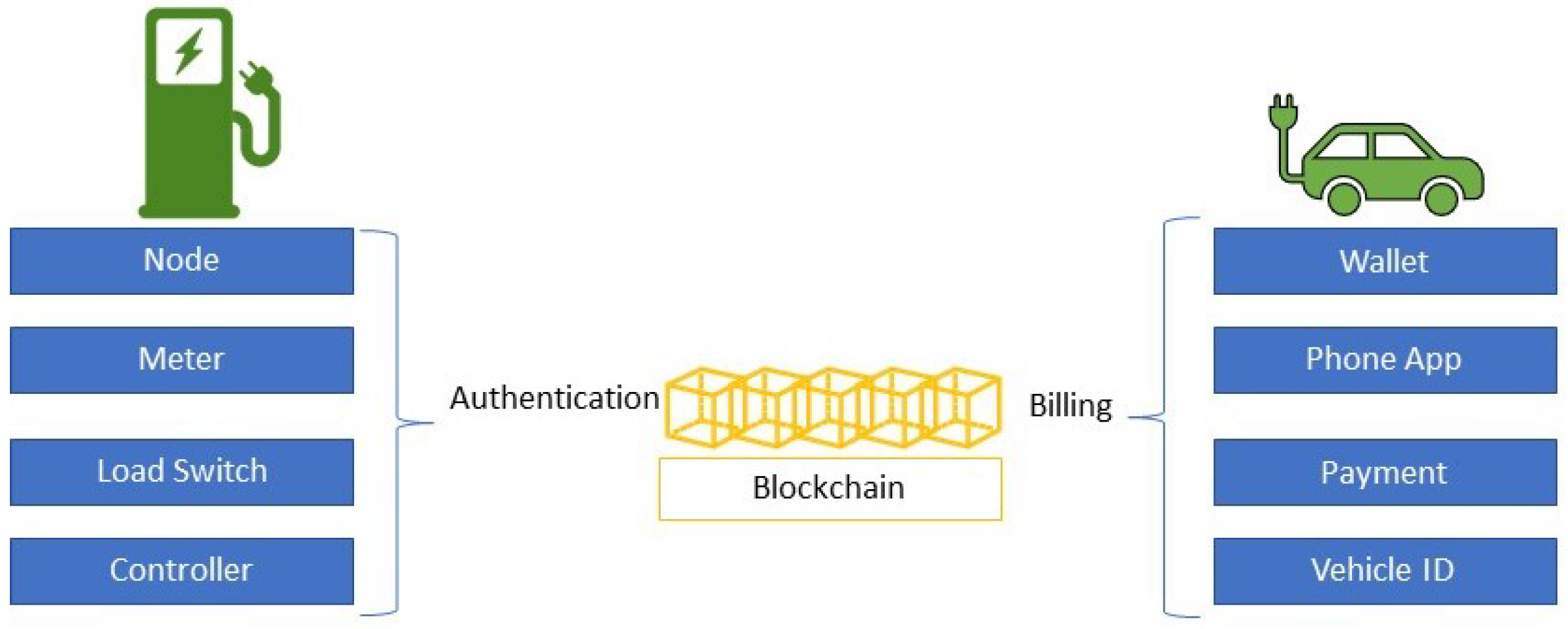Features of a Blockchain Based Electric Vehicle Smart Charging System
Features of a Blockchain Based Electric Vehicle Smart Charging System!
The Blockchain based Electric Vehicle Smart Charging System allows you to enjoy the perks of a smarter, more efficient charging system.
It features such as:
Security
Using a distributed ledger to verify transactions, the blockchain offers a secure way to store data.
This allows for better security, preventing attackers from accessing your personal information and electric vehicle data.
Automation & Real Time Insight
The https://www.gocharge.tech system also provides real-time analytics, enabling you to monitor and control usage according to your specific needs.
Automated charging reduces the need for manual intervention, saving you time and money.
Transparency & Flexibility
Another advantage is its transparency – every transaction is recorded on the blockchain and it allows for flexible prices as well as scheduling options.
This means that you can decide when and how much to charge depending on your specific needs and preferences.
Challenges of Implementing a Blockchain Based Electric Vehicle Smart Charging System
The implementation of a blockchain based electric vehicle smart charging system presents several challenges, ranging from technical to regulatory.
Technical Challenges
A key challenge is the lack of standardization in electric vehicles, which may require the system to be adaptable to different technologies.
Additionally, the blockchain based smart charging system must be secure and robust enough to withstand malicious attacks while still providing flexibility and scalability in order to respond quickly to changing market conditions.

Lastly, the development of an effective and efficient data communication protocol will be required in order for the blockchain based system to provide a seamless user experience.
Regulatory Challenges
Electric vehicles also come with unique regulatory challenges.
With an increasing number of countries introducing legislation aimed at encouraging the adoption of electric vehicles, new regulatory frameworks are needed for access and pricing models for using public charging networks.
Furthermore, electricity markets may need revamping in order to enable cross-border payment systems between different countries or jurisdictions.
The current lack of standardization regarding electricity retail prices further complicates this process.
Platforms and Services Offering Blockchain-Based Electric Vehicle Smart Charging Solutions
Today, there are a variety of platforms and services offering blockchain-based electric vehicle smart charging solutions.
By using this technology, drivers can monitor and optimize their charge times and locations while reducing the complexity of managing their own EV charging.
Platforms
Rather than relying on traditional EV infrastructure such as public EV charging stations or home-based charge points, platforms such as [Platform's Name] offer drivers an alternative option – to tap into peer-to-peer energy trading.
It is a two-way grid that allows energy producers and consumers to transact energy in a secure and trustless manner through the use of smart contracts which are based on blockchain technology.
Services
Along with platforms, services such as [Service's Name] help to bridge the gap between private EV charging infrastructure providers and potential users.
This service monitors and optimizes global EV charging rates in real time by collecting data from all around the world in order to provide drivers with up-to-date information about current EV charging costs, availability, location, and more.
By utilizing blockchain-based electric vehicle smart charging systems, drivers can easily keep track of their EV's energy consumption in real time while optimizing their charge times and locations.
In conclusion, blockchain based electric vehicle smart charging is an innovative way to optimize the charging of electric vehicles while leveraging the benefits of blockchain technology.
This system utilizes the blockchain to create a highly secure and transparent platform that can securely store and exchange data relating to the charging of electric vehicles, as well as manage the flow of electricity to ensure that the most efficient and cost-effective charging solution is achieved.
By leveraging this technology, the electric vehicle industry can achieve cost savings, reduce waste, and better benefit from the data generated from the use of electric vehicles.
This is a great example of how blockchain technology can be leveraged for the benefit of the entire electric vehicle industry.
Comments
Post a Comment